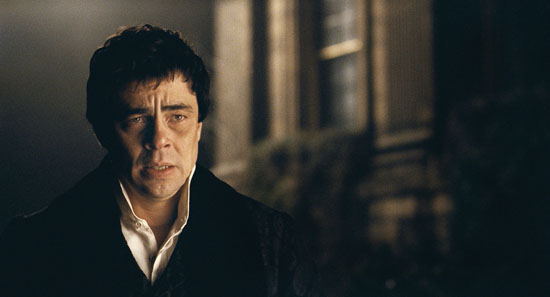Cast: Helen Mirren, James McAvoy, Christopher Plummer, Paul Giamatti
The film seemed to be concerned with whether or not thoughtless romantic love is the reality and truth of life, and should be allowed to triumph over intellectual ideology. Unfortunately the film had already made it’s mind up before we sat in our seats, and we were treated to a drawn-out, unrequited love story that gave no insight into the life or works of Leo Tolstoy.
That said, I heard sniffling all around me as the film came to its aching climax (although I was surrounded by “luvvies” who remembered ‘Helen’ from her ‘Royal Court’ days) and as I walked out of the screening there were plenty of young women wiping tears from their eyes. I began to think that maybe I was dead inside… but I think really I just believe too much in what Tolstoy wrote to imagine him agreeing with the message of this film: that some volatile and selfish love is more important than the selfless and rational love for one’s fellow man. Maybe I was just too affected by Thoreau’s thoughts on the subject… “a bucket of water soon becomes putrid, but frozen remains sweet forever.”
Helen Mirren and Christopher Plummer are superb as the haggard, warring couple; and Paul Giamatti somehow manages to pull off being an embittered, shallow weasel of a man (how does he do it?!) James McAvoy is still a fairly unknown quantity in feature films; and that doesn’t seem set to change here. His performance in The Last King of Scotland was flawless, but not overly memorable when compared to Forest Whitacre’s spellbinding Idi Amin. Here again, McAvoy’s quiet talent is all but washed away by the panting and groaning of two of the finest actors ever to grace the screen (that’s Plummer and Mirren by the way… Giamatti isn’t there yet.) But as his character becomes more and more impassioned and disgusted, McAvoy’s undeniable screen presence twisted his face into a snarling mask.
The film seemed to be concerned with whether or not thoughtless romantic love is the reality and truth of life, and should be allowed to triumph over intellectual ideology. Unfortunately the film had already made it’s mind up before we sat in our seats, and we were treated to a drawn-out, unrequited love story that gave no insight into the life or works of Leo Tolstoy.
That said, I heard sniffling all around me as the film came to its aching climax (although I was surrounded by “luvvies” who remembered ‘Helen’ from her ‘Royal Court’ days) and as I walked out of the screening there were plenty of young women wiping tears from their eyes. I began to think that maybe I was dead inside… but I think really I just believe too much in what Tolstoy wrote to imagine him agreeing with the message of this film: that some volatile and selfish love is more important than the selfless and rational love for one’s fellow man. Maybe I was just too affected by Thoreau’s thoughts on the subject… “a bucket of water soon becomes putrid, but frozen remains sweet forever.”
Helen Mirren and Christopher Plummer are superb as the haggard, warring couple; and Paul Giamatti somehow manages to pull off being an embittered, shallow weasel of a man (how does he do it?!) James McAvoy is still a fairly unknown quantity in feature films; and that doesn’t seem set to change here. His performance in The Last King of Scotland was flawless, but not overly memorable when compared to Forest Whitacre’s spellbinding Idi Amin. Here again, McAvoy’s quiet talent is all but washed away by the panting and groaning of two of the finest actors ever to grace the screen (that’s Plummer and Mirren by the way… Giamatti isn’t there yet.) But as his character becomes more and more impassioned and disgusted, McAvoy’s undeniable screen presence twisted his face into a snarling mask.
(051209203658)The_Last_Station_8.jpg)






